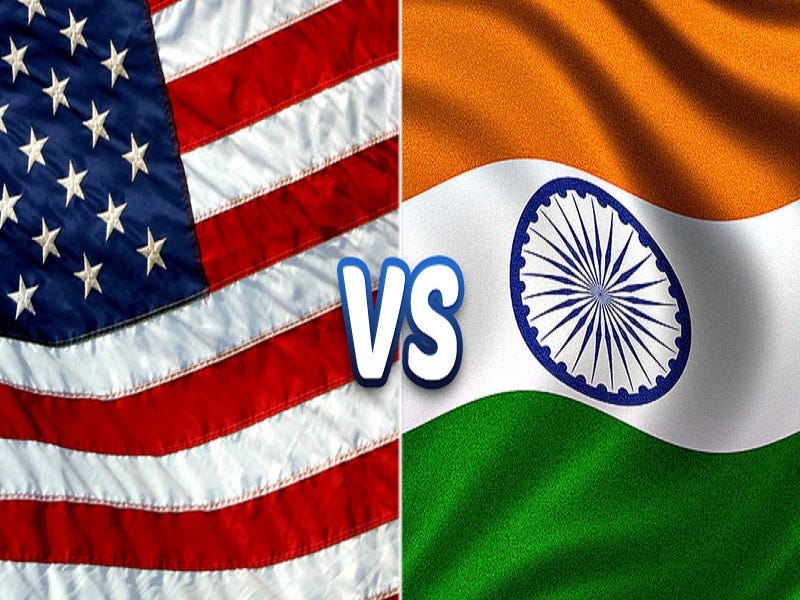The US Just Admitted To Meddling In Indian Foreign Policy But Still Won’t Admit Defeat
This very strongly suggests that the US will double down on its failed policy with the same passion as India has doubled down on the Russian dimension of its dual-tripolarity grand strategy, which could result in those Great Powers moving further apart across the coming months.
Any objective observer realized from the start of Russia’s ongoing special military operation in Ukraine that the US was aggressively pressuring all countries to condemn and sanction Moscow despite Washington denying its intent to meddle in their foreign policies. After successfully reimposing its hitherto declining unipolar hegemony over the entirety of the EU, America swiftly moved to replicate this with respect to India, though that South Asian civilization-state proudly rebuffed all of the US’ pressure and even doubled down on the Russian dimension of its dual-tripolarity grand strategy.
Nevertheless, the US continued gaslighting the world by claiming that it never had any such intentions to meddle in India’s foreign policy, yet State Department spokesman Ned Price just let the cat out of the bag during a press conference on Wednesday. He admitted that “we also recognize, as I was saying just a moment ago, that this is not flipping a light switch. This is something that especially for countries that have historical relationships with Russia, relationships that, as is the case with India, extend back decades, it is going to be a long-term proposition to reorient foreign policy away from Russia.”
There’s no other way to interpret this statement as anything other than an official confirmation that the US is indeed attempting to meddle in India’s foreign policy by continuing to pressure it into scaling back relations with Russia. Nevertheless, Price still won’t admit that this policy has failed since he earlier deflected after a reporter reminded him of the latest facts connected to the Russian-Indian Strategic Partnership, especially regarding India’s massive purchase of its partner’s oil, Moscow’s delivery of S-400 air defense systems to Delhi, and that South Asian state’s participation in upcoming multilateral drills.
This very strongly suggests that the US will double down on its failed policy with the same passion as India has doubled down on the Russian dimension of its dual-tripolarity grand strategy, which could result in those Great Powers moving further apart across the coming months. Delhi has no desire to distance itself from either Moscow or Washington, but it won’t unilaterally concede on issues that it regards as being in its objective national interests under any circumstances, hence why it continues comprehensively expanding ties with the former while publicly criticizing the latter for pressuring it.
Price’s surprising admission about America’s aggressive pressure campaign against India might ultimately be seen in hindsight as a turning point in their bilateral relations. All objective observers already knew about the US’ scheme but it’s something else entirely for the State Department’s spokesman to officially confirm it. No self-respecting and confident country like India could ever accept having another country openly talk about meddling in its foreign policy, which is why it should be expected that it’ll either publicly protest this or at the very least address it behind closed doors.
The US usually airs out its problems with other countries in public, however, unlike Russia which keeps disagreements discrete according to the Indian Ambassador to Moscow’s recent praise of his hosts while talking to Sputnik during last week’s India Day Festival. Accordingly, and considering that private discussions between America and India have thus far failed to smooth over their differences on Russia, there aren’t any reasons to predict that Delhi’s diplomatic response (be it public and/or private) will convince Washington to abandon its hegemonic pressure campaign.




